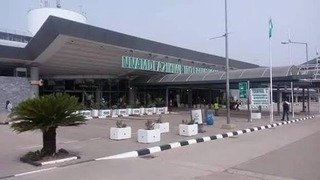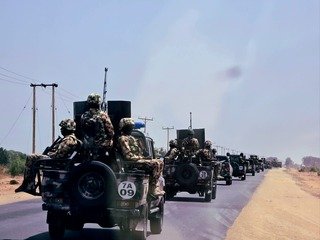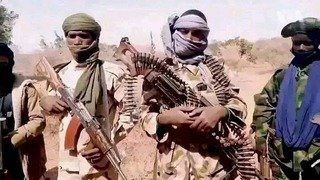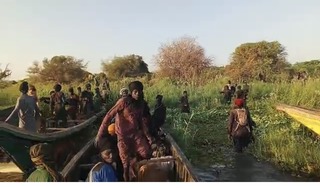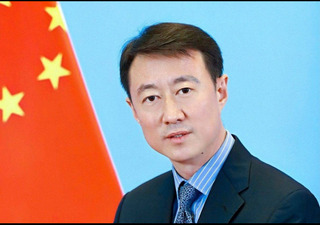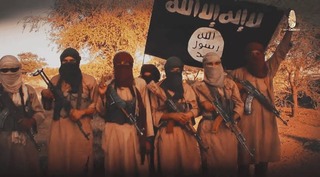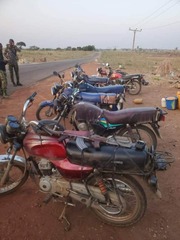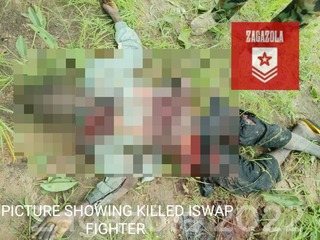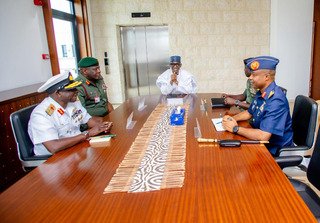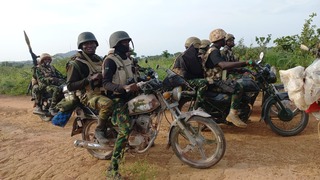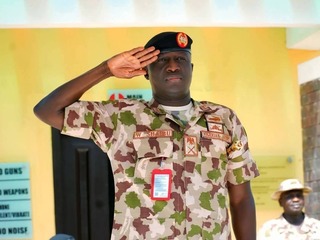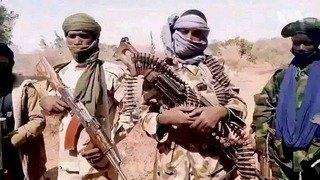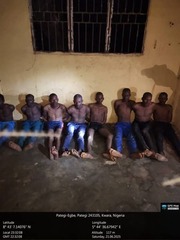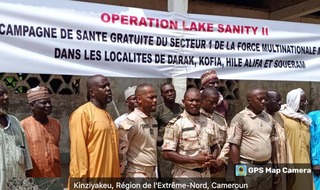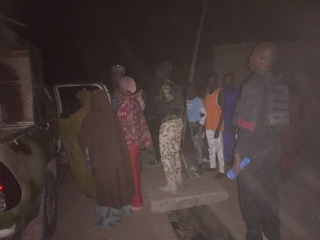EXCLUSIVE: Fulanis decry injustice in North West, seek end to violence as top bandits weigh surrender
By Zagazola Makama
In the heart of Zamfara’s conflict-weary forests, a growing chorus of Fulani herders and leaders is calling for an end to violence not with weapons, but through dialogue and justice. They say they are ready to embrace peace, if government addresses long-standing grievances that have festered into bloody confrontations.
For over a decade, northwestern Nigeria has been plagued by banditry, livestock rustling, mass abductions and retaliatory attacks that have left hundreds dead and thousands displaced. But in a rare show of willingness, Fulani stakeholders at a recent meeting in Gusau expressed readiness to renounce violence if treated with fairness.
The sensitisation forum, hosted on May 4 by the Commander of 1 Brigade, Nigerian Army, brought together Fulani leaders under the aegis of Miyetti Allah Cattle Breeders Association of Nigeria (MACBAN), alongside top security officials, including representatives of the State Director of Security and the Commissioner of Police.
Fulani leaders from all 14 local government areas of Zamfara attended the meeting, where they poured out their grievances — some dating back years — and appealed for genuine government intervention.
“We are not all bandits,” Fulani leaders insist
“I have lost over 150 cows to Yansakai, yet I have never carried a weapon or joined any group,” said Mallam Salisu Umar, a herder from Maru LGA. “But every time they see a Fulani man, they see a bandit. Is that fair? Is that justice?”
Another herder, Muhammadu Sale, alleged that just last Friday, vigilantes stole about 300 livestock belonging to a law-abiding Fulani man. “They never took the animals to the committee on recovery of livestock — they sold them in the market in connivance with some local security actors,” he said. “In Rijiya, Gusau LGA, another 370 livestock were stolen and diverted.”
The Yansakai vigilante groups, originally formed to protect communities, were accused of indiscriminate violence against Fulani settlements, burning homes, killing unarmed civilians, and rustling cattle under the guise of fighting banditry.
According to Mallam Haruna Dogo from Anka LGA, the situation has become so dire that Fulani children cannot attend schools in Hausa-dominated communities. “The hatred has grown so deep that our children are denied access to education and basic amenities. We are being cut off from society,” he lamented.
Several speakers at the forum said Fulani herders were being profiled, attacked, and even executed without trial. “In some cases, a Fulani youth is captured, beaten until he confesses to being a bandit, and then killed. If anyone dares retrieve his corpse, they are accused of being an accomplice,” said one leader.
Another Fulani elder said he had not travelled in a vehicle for four years out of fear, noting that the meeting in Gusau marked his first time stepping out in days. “Thousands of Fulani families are hiding in the bush, living in fear. Their only crime is being Fulani — and because of a few criminals among us, the whole society sees us as enemies.”
“Our cows are stolen, and security agencies look the other way”
One of the most serious allegations raised at the forum was the alleged collaboration between rogue security personnel and vigilante groups.
“They recover our cows and sell them,” alleged Alhaji Musa Bature from Tsafe. “We sometimes find the stolen animals in open markets. When we report to police, nothing is done. Security agents are benefitting from these crimes.”
He said this cycle of dispossession and injustice was pushing many Fulani youths into banditry.
“Even when we warn them, they say they have no choice. Food is scarce. A mudu of rice is nearly N10,000. Slippers cost N5,000 because of the risks traders face. This desperation leads them into evil acts like kidnapping.”
Umar Jega from Bakura LGA said his entire village was razed by Yansakai last year. “We lost everything. No one was held accountable. We are treated like people without rights.”
Many Fulani leaders at the forum blamed systemic injustice for driving youth into militancy.
Hope from within: top bandits open to surrender
In a potentially game-changing development, several notorious bandit leaders, including Saidu Naeka, Jimmi Smally and Kabiru Yankusa, have indicated willingness to surrender arms on the condition of safety and reintegration. Even Notorious bandits leaders like Bello Truji and Alhaji Nashama have were also part of those who agrees to key into the ongoing non-kinetic efforts.
There are some Fulanis who see the approach as a ploy to arrest them while others think it was politically motivated to manipulation manipulate them. Also, bandits kingpins like Ado Alero and Madele showed interest initially, by sending their representatives to attend the meeting.
“These men are tired,” said a source familiar with the dialogue. “They want peace, but they need assurance they won’t be killed or humiliated. Some of them have also lost loved ones in the cycle of violence.”
Sources said the bandit leaders had already begun patrolling parts of Sokoto Road to deter attacks. “Just last week, they eliminated two bandits who attempted to block the road.”
Following the meeting, more than 100 kidnap victims were released in separate operations in Moriki and Kango Forest. Some victims were handed over directly to the military, while others were rescued by vigilantes and handed over to troops. “We were told we were being released because their leaders now want peace,” said Rabiatu Halliru, one of the freed captives.
Another victim, who spent five months in captivity, said: “It was a miracle. We didn’t pay any ransom. They told us they had made a promise to release us and they kept it.”
The non-kinetic approach initially brought relative calm in the Anka general area, until when some hybrid forces brought in from the North East attacked and beheaded an innocent Fulani boy and cut off some part of his body, roasted it and eat it, that's when tensions grew again. Another Fulani woman was killed by the Yansakai when she went to the Market, with the accusation that she was linked with bandits.
Fulani leaders propose roadmap to peace
To consolidate peace, Fulani leaders proposed a number of initiatives, including: disbanding or properly regulating the Yansakai vigilantes who were neither employed or recognized by the government. They also want government to reconsider reopening of their cattle markets and herders’ movement corridors.
The Fulani elder also demanded that they want schools, boreholes, and health centres to be constructed in Fulani communities, while insisting on equal treatment of offenders, regardless of ethnicity because they said there are two types of banditry, the one perpetrated by the criminal bandits amongst them and the one perpetrated by Yansakai along with some rogue security personnel.
They proposed direct engagement between MACBAN and bandit leaders to facilitate further releases and end attacks on farmers, nothing that If such opportunity is wasted, more lives will be lost,” warned Mallam Abubakar Sani from Zurmi.
“We are tired. Our children are tired. Let this be the beginning of the end.”he said.
Alhaji Bello Maiturare, MACBAN Chairman in Zamfara, pledged to lead the dialogue with bandits. “We’ve spoken to some of them. They are listening because of this meeting. If the government keeps its word, we will bring more people out of the bush.”
“Most bandits are not sincere” – Theatre Commander
However, the Theatre Commander of the Joint Task Force, Operation FANSAN YANMA, Maj.-Gen. Oluyinka Soyele, expressed caution.
“Most of the bandits are not sincere. Even after promising to stop attacks, they continue killing and kidnapping people,” he said.
Soyele reiterated that Governor Dauda Lawal and the Government, through the Operation Safe Corridor initiative, had consistently said that only genuinely repentant bandits who renounce violence would be accepted.
“If they are serious and send emissaries to declare their readiness to stop, why not? We are not happy fighting our own people whether Hausa or Fulani , they are Nigerians.”
“But let me tell you what usually happens: when they feel the heat from military operations, they offer to surrender. Once the pressure eases, they regroup, rearm and return to terrorism.”
On the issue of Yansakai, Soyele said: “No one owns up to forming it, but everyone agrees it was created by the Hausa community to protect themselves from cattle rustling. If attacks stop from one side, we can contain the other. But the key is sincerity.”
“Even today, they attacked Maru. We still hear of pockets of attacks here and there by Dan Sadiya. So where is the sincerity?” the Theatre Commander Insist.
Special Appeal to the Defence Headquarters, National Security Adviser, National Counter Terrorism Centre, and DSS: A Call for a Unified, Sustainable Approach to Ending Banditry and Restoring Peace in the North West
However, Zagazola Makama, noted that as Nigeria marks over 15 years of protracted violence and insecurity in the North West, it is time to acknowledge a hard but essential truth: the military alone cannot end banditry.
“What we face is no longer a purely kinetic conflict; it is a complex socio-security crisis that demands a whole-of-society approach, one that combines force with dialogue, justice with reconciliation, and tactical operations with strategic engagement.
“We commend the Defence Headquarters and the intelligence community for the consistent pressure mounted on bandits across Zamfara, Katsina, Kaduna, Sokoto, and Niger States. We also acknowledge the courageous efforts of security forces on the frontline.
However, it is time to complement those military operations with non-kinetic solutions that address the root causes of the violence, as recently demonstrated in Katsina, Kaduna, and Benue States, where targeted engagement with bandit leaders and conflict stakeholders has begun to yield positive results.
“Let us be candid: the pattern of violence across the North West, North Central, and even parts of the North East suggests that the same networks of armed bandits are interlinked from Zamfara and Katsina to Benue, Plateau, and Taraba.
Their grievances of the Fulani people are strikingly similar ranging from extrajudicial killings by vigilantes (Yan Sakai), loss of livelihoods, lack of inclusion in governance, to ethnic profiling. While these do not justify actions of some criminals amongst them, they point to the urgent need for political, social, and security reintegration mechanisms.
A tragic illustration of this is the recent escalation in Birnin Magaji LGA, Zamfara State, where 25 communities have been banned from accessing their farmlands by a notorious kingpin, Alhaji Nashama. According to local sources, Nashama had earlier promised to protect these communities from rival bandit groups. However, following the alleged killing of two of his relatives, Babuga and Usman whom he claimed were innocent by Yan Sakai operatives, he imposed a violent embargo on farming activities in the area, vowing to kill anyone seen in the fields.
This is not an isolated case. It reflects the fragile trust deficit between rural communities, vigilantes, and armed groups, and point to why pure military responses cannot sustainably resolve this crisis. If we are to prevent further reprisals and displacements, we must take bold steps to re-establish dialogue channels, backed by the intelligence and verification strength of the DSS, the National Counter Terrorism Centre, and community leaders.
We therefore urge the Federal Government to seize this opportunity to chart a new strategy for lasting peace in the Country. The success of community dialogue efforts in places like Katsina and Kaduna, proves that where there is political will and strategic coordination, peace is possible. The time has come to act not just with force, but with foresight.
Nigeria deserves peace. The people of Zamfara, Katsina, Kaduna, Sokoto, Benue, and Plateau deserve to farm, trade, and live without fear. Let us give peace a chance decisively and deliberately.
Zagazola Makama is a Counter Insurgency Expert and Security Analyst in the Lake Chad Region


